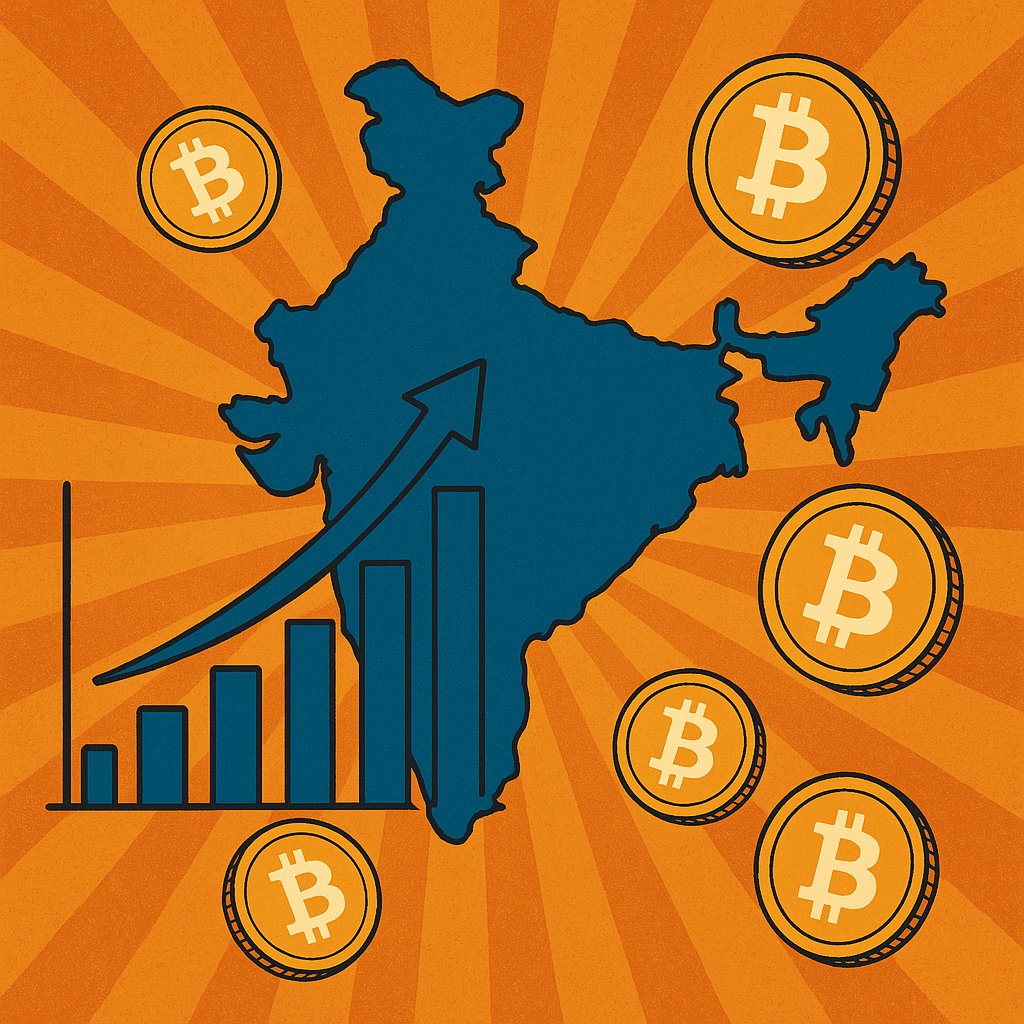
Indian Crypto Sector Advocates for Tax Reductions Amid Easing Government Attitude
The Indian cryptocurrency industry intensifies lobbying for tax reductions as they perceive a shift in government standards regarding crypto policies.
The Indian cryptocurrency sector is actively increasing its lobbying for a lower tax burden on trading activities, as recent developments suggest a more favorable stance from the government. A Financial Times article dated May 27, 2025, noted this shift coinciding with trade discussions with the US.
Ashish Singhal, the founder of CoinSwitch, an Indian crypto exchange, noted that interactions with government representatives are now more regular, transitioning from infrequent meetings to a pace of once a month or even weekly.
The primary demand from industry leaders is a reduction in what they deem excessively severe tax policies.
Historically marginalized due to associations with criminal elements, the crypto industry is gaining traction as executives from leading Indian exchanges disclose a significant uptick in government communication, particularly after Donald Trump returned to power with a pro-crypto agenda.
BREAKING: 🇮🇳 India contemplating changes to crypto policies. Proposed revisions to the 30% tax and TDS regulations could align with those governing the stock market. If true, it might bring some ease to Indian #crypto traders.
Link to tweet.
Currently, crypto transactions in India incur a capital gains tax of 30% along with a 1% TDS, which were imposed to enhance transaction transparency and combat illegal activities within the sector.
However, a July 2024 report from Esya Centre revealed that these tax policies have pushed over 90% of Indian traders to operate overseas.
Singhal has suggested that a minimal transaction tax of 0.1% could facilitate traceability without hindering market operations.
Trump’s Influence on Indian Crypto Policies
Coinbase, with its recent reestablishment in India, perceives Trump’s re-election and his supportive crypto policies as catalysts for renewed global crypto momentum. Tom Duff Gordon, Coinbase’s VP of International Policy, stated that the Indian government recognizes the impracticality of enforcing an outright crypto ban. He argues that tax relief isn’t their primary focus, but a balanced approach would broaden the tax base and encourage the return of offshore trading.
As platforms like Coinbase and Binance reopen in India, projections suggest that the country’s crypto market, currently valued at $2.5 billion in 2024, could expand to over $15 billion by 2035 based on analysis by accounting firm Grant Thornton.
Despite perceived advancements, the Indian crypto lobby expresses disappointment as the Bharat Web3 Association criticized the absence of tax relief in the February budget announcement. Edu Patel, CEO of Bangalore-based Mudrex, claimed that the current tax structure poses a significant challenge for the industry.
Reserve Bank of India Maintains Caution
Traditionally, the Reserve Bank of India (RBI) has opposed any crypto integration, previously classifying it as akin to Ponzi schemes as early as 2022. Although it directed banks to refrain from assisting crypto entities, this ban was overturned by the Supreme Court.
In December of last year, the RBI even hinted that cryptocurrencies could jeopardize India’s financial stability, but its stance has softened since then. The new RBI chief, Sanjay Mishra, has abstained from outright condemnation of the crypto sector, indicating the need to await revised government policy.
Public sentiment remains a barrier, as Suril Desai, heading the technologies team at Nishith Desai Associates, reported that many Indians still regard cryptocurrencies as illegal. Nonetheless, there exists a robust interest among the youth to invest in digital assets.
Key Takeaways
- High taxation has compelled over 90% of Indian crypto traders to operate outside the country.
- The Indian crypto market is projected to grow from $2.5 billion in 2024 to over $15 billion by 2035.
- A significant number of Indians continue to distrust cryptocurrencies, perceiving them as illegal assets.



